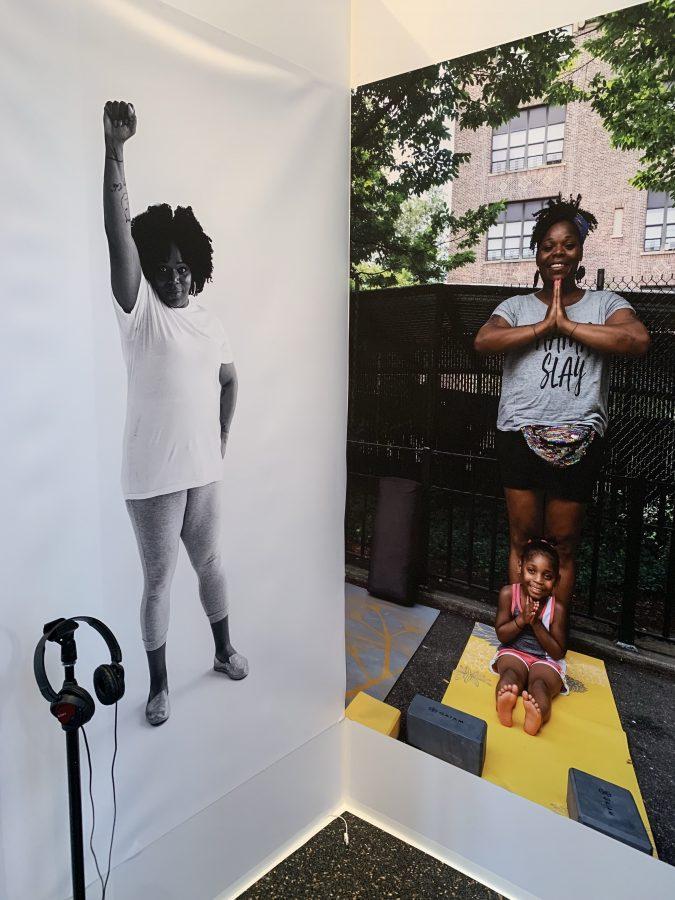NYU doctoral student Michelle Jones unveiled a project on Thursday that incorporates different forms of media in an attempt to humanize formerly incarcerated people, who are often subject to stigma and stereotypes.
Michelle Jones became one of the most prominent advocates for formerly incarcerated people when, after her initial acceptance to Harvard University’s History Ph.D. program, she was arbitrarily rejected by higher-ups within the university due to her criminal record. Now, she is in the American Studies program of the School of Social and Cultural Analysis and using what she’s learning to produce a project made up of portraits taken by photographer Tarah Douglas, a documentary created by videographer Raechel Bosch and voice recordings from interviewer Jose Diaz.
Titled “Point of Triangulation,” it intends to break down stereotypes surrounding formerly incarcerated people and will be shown in the Gallatin Galleries until Oct. 1. Tisch School of the Arts, Gallatin School of Individualized Study and NYU’s Prison Education Program all came together to help produce the installation.
Ten formerly incarcerated individuals are included in the project, each with two portraits: one in black and white on a blank backdrop mirrored by one in vibrant color, which each individual chose themselves. An audio recording accompanies each portrait, through which each participant tells their story. Directly in front of each portrait, a red line of tape lies in stark contrast with the white floor.
“We are asking individuals to step on the red line because it requires us, the body, to complete a triangle,” Jones said during the panel event on Thursday.
Jones said she hoped the project would make it is easier for those on the outside to understand formerly incarcerated individuals.
“[See them] dressed and located in a space of empowerment and strength, with the things and the people that mean the most to them, that help them be more than a single story of a criminal,” Jones said.
Matthew Delvecchio, a participant in the project, became involved through NYU’s Prison Education Program.
He said he greatly appreciates the efforts of those involved to break down the “stigma that gets put on people that are incarcerated.”
This story is one that Jones, for better or worse, knows well. She herself is part of the exhibit, having been incarcerated for more than 20 years in Indiana for killing her four-year-old son. Jones had the child at age 14 after being sexually assaulted. Jones experienced a great deal of trauma and abuse during her childhood that she recognizes to have negatively impacted her mental health. During her time in prison, Jones earned a Bachelor’s degree from Ball State University and audited graduate courses at Indiana University, before applying to doctoral programs. NYU is where she ultimately ended up.
Asha Bandele, a six-time New York Times best-selling author and journalist, was the moderator of the event. She is widely known for her memoir “The Prisoner’s Wife,” focusing on her experience marrying a man incarcerated for murder.
“[Formerly incarcerated people] are all too often pulled out on the stage to bleed and call it diversity and go home,” Bandele said. “What’s good is to be in a community.”
CAS first-year Naloni Ferguson attended the event and said she felt she took away an important message from it.
“The emphasis is placed on recognizing that these people are more than what they went to jail or prison for,” Ferguson explained. “They’re more than the mistakes they’ve made in the past.”
Email Emily Dicks at [email protected]
























































































































































Plain • Jul 23, 2020 at 3:13 pm
“arbitrarily rejected by higher-ups within the university due to her criminal record.”
If you’re reading this, fuck you.